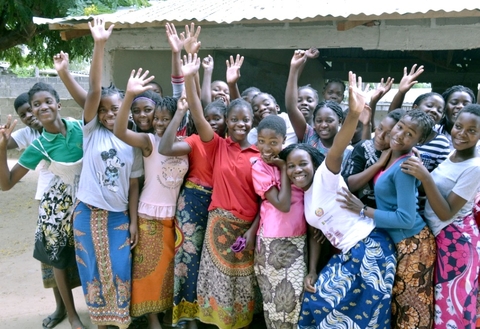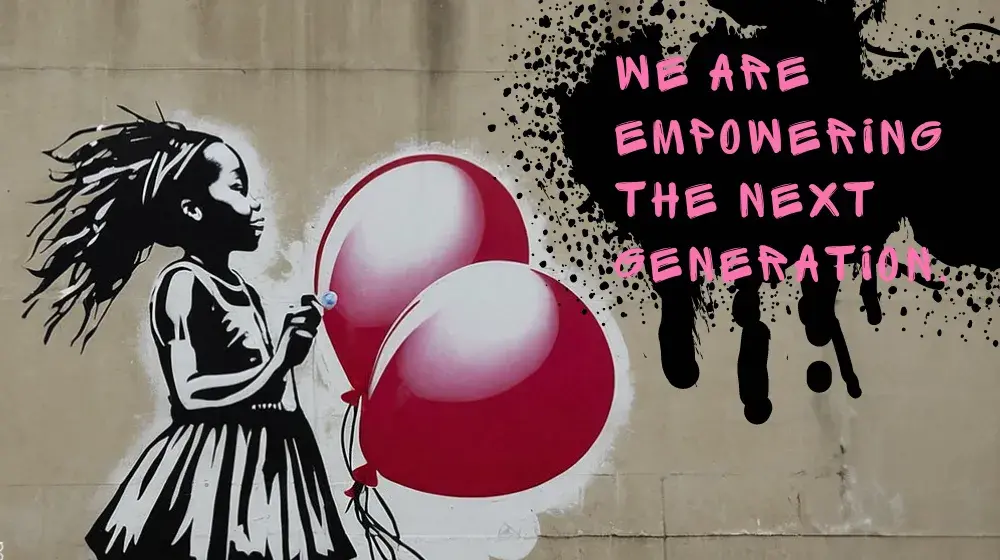NAMPULA CITY, Mozambique—“I hadn't heard of contraceptives before I met the mentor in my community and became part of Rapariga Biz,” says Marcia, 19. She was 17 years old at the time, out of school and in the fourth month of her pregnancy. “Now I am an empowered young woman. I know how to protect myself and to stand up for my rights, which I didn't know I had before.”
Now I am an empowered young woman. I know how to protect myself and to stand up for my rights.
Marcia was forced into marriage, with her mother’s support. She was often forced to have sex with her husband against her will. She felt alone, with no one to turn to.
Then two years ago, things began to look up for her.
She joined the ranks of about 100,000 girls and young women who have been reached by Rapariga Biz, a government-led sexual and reproductive health and rights initiative, since its inception in May 2016.

space in Nampula City. © UNFPA Mozambique
Challenging social and gender norms
Many adolescent girls in Mozambique lack information about contraceptives and their right to exercise full control over their bodies. This is reflected in the low contraceptive prevalence rate (CPR) of 14 per cent among adolescents aged 15 to 19 years. It also reflects in the high rate of teenage pregnancy, currently at 46 per cent among 15 to 19-year-olds (IMASIDA, 2015).
Entrenched social and gender-based norms influence adolescents and young people’s sexual and reproductive health and rights, and their level of empowerment. These also lead to discrimination against and the marginalization of girls and young women.
We believe that the empowerment of adolescent girls and young women begins with having control over and agency of their body.
Through a holistic and integrated human rights-based approach, Rapariga Biz aims to reverse this situation and restore reproductive justice[1] among adolescent girls and young women: “We believe that the empowerment of adolescent girls and young women begins with having control over and agency of their body,” says Andrea Wojnar, UNFPA Resident Representative in Mozambique.
Evidence from the first two years of the programme’s implementation has shown that the supportive presence of a mentor is transformative for the empowerment and personal development of the target group.
“My mentor is my everything [to me]. She was there for me during difficult situations. She accompanied me to the youth-friendly services (SAAJ) to consult a nurse on the use of contraceptives. She also encouraged me to return to school and to go after my dreams,” says Marcia. Now she dreams about working in a bank to be able to provide for herself and her daughter.
Empowering girls to make healthy decisions
Rapariga Biz targets girls and young women aged 10 to 24 years in 20 districts in two provinces in Mozambique, with technical assistance from UNFPA, UNESCO, UNICEF and UN Women, and funding from Swedish International Development Cooperation Agency (SIDA).
At the heart of its human rights-based approach is mentorship. To date the programme has mobilized and trained 3000 young women as mentors, each of whom work with 30 girls and young women in community ‘safe spaces’ on a weekly basis for a duration of 4 months – making a total of 90 sessions per year.
For the weekly sessions, the mentors are trained to address and discuss issues such as sexual and reproductive health and rights, citizenship, participation, and life skills, such as communication, negotiation, decision making and confidence.
My mentor taught us to stand up for ourselves and to make healthy decisions. Now I know how to say no and [that] using contraceptives is my right.
“My mentor taught us to stand up for ourselves and to make healthy decisions. Now I know how to say no and [that] using contraceptives is my right,” says Marcia.
Her mentor, Jorgina, is proud to see her transformation, from a young woman suffering in her marriage to an empowered young woman attending school. Marcia is an inspiration for other adolescent girls in her community, Jorgina says.
Rapariga Biz contributes directly to implementation of Mozambique’s Family Planning 2020 Commitment, which aims at increasing the use of modern contraceptive methods for adolescents aged 15 to 19 years, from 14 per cent (DHS, 2011) to 19 per cent in 2020, and from 27 per cent (DHS, 2011) to 50 per cent in 2020 for unmarried sexually active adolescents aged 15 to 19 years.
With the ambitious goal of reaching one million girls and young women, Rapariga Biz is quickly turning into a movement towards realizing the potential of girls and young women, and accelerating the development of Mozambique.
“With the ambitious goal of reaching one million girls and young women, Rapariga Biz is quickly turning into a movement towards realizing the potential of girls and young women, and accelerating the development of Mozambique,” says Ms. Wojnar.
- Helene Christensen




